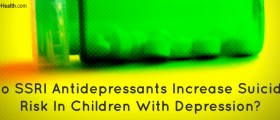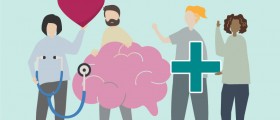General overview
Major depression is a mental health condition which is classified as a mood disorder. This illness affects how an affected person thinks, feels and behaves and it can result in a number of physical and/or emotional problems.
Symptoms
Depression usually occurs once in a person's life, but some people can experience recurrent bouts of depression depending on their unique circumstances.

During episodes of depression, symptoms occur most of the day and nearly every day. The symptoms can include the following:
- Anxiety.
- Agitation.
- Restlessness.
- Feelings of hopelessness, tearfulness, emptiness or sadness.
- Aggressive outbursts.
- Irritability or frustration over small matters.
- Sleep disturbances - either too little or too much sleep.
- Changes in appetite - usually reduced appetite with weight loss, but in some patients they may experience cravings for high fat and refined foods which leads to weight gain.
- Feelings of worthlessness or guilt over past failures, and blaming oneself for things that they weren't responsible for.
- Experience trouble with concentrating and focusing and having issues with making decisions and remembering things.
- Physical issues which can't be explained, such as headaches and back pains.
- Suicidal thoughts which may be recurrent and frequent thoughts of death. Also, suicide attempts.
Risk factors
Some people are more prone to developing major depression and the risk factors that are associated with it are as follows:
- Having certain personality traits such as low self-esteem and being pessimistic and self-critical.
- Traumatic events such as sexual or physical abuse or death of a loved one.
- Family history of mood disorders such as depression and bipolar mood disorder.
- Being gay, lesbian, transgender or bisexual in a situation which doesn't offer support.
- Serious or chronic illnesses such as cancer, heart attack or a stroke.
- History of other mental health issues such as an anxiety disorder.
Complications
The following are problems which may occur as a result of prolonged and untreated major depression.
- Chronic, unexplained pain.
- Alcohol and/or substance abuse.
- Social isolation.
- Conflicts with family and friends.
- Work or school related problems.
- Increased weight which may result in conditions such as hypertension and/or diabetes.
- Self-mutilation.
- Increased mortality risk which may result in premature death.
- Suicidal thoughts and feelings which can result in attempted or successful suicide.
Management
Appropriate management of major depression will rely on combining oral antidepressant medication and psychotherapy.
The oral medication helps to elevate a person's mood and reduce anxiety, therefore helping to decrease symptoms associated with major depression. Psychotherapy, in the form of cognitive-behaviour therapy (CBT), is used by psychologists to help change the patient's negative perceptions into positive thoughts and it also helps to introduce coping skills which the patient will use to help manage their emotions better.
















